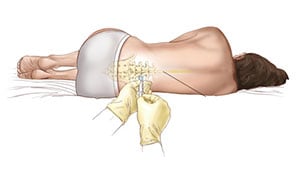Risk Factors
Anyone can get meningococcal disease, but certain people are at increased risk. A person’s risk can vary due to many factors:
- Age
- Medical condition
- Medications
- Places and settings (i.e., where they work, live, or travel)
CDC recommends meningococcal vaccination for people at increased risk for meningococcal disease. Learn more about meningococcal vaccine recommendations.
Age
Infants, teens and young adults, and older adults have the highest rates of meningococcal disease in the United States. Specifically, doctors more commonly diagnose meningococcal disease in
- Children younger than 1 year old
- Teens and young adults ages 16 through 23 years old
- Adults 65 years and older
Learn more about the risk for meningococcal disease by age.
Medical conditions
Certain medical conditions weaken the immune system and increase someone’s risk for meningococcal disease:
- Persistent complement component deficiencies
- Functional and anatomic asplenia
- HIV infection
Complement component deficiencies
Complement component deficiencies refer to disorders of the ‘complement system,’ which helps the body fight off infections. Examples of complement component deficiencies include C3, C5-9, properdin, factor H, and factor D. These disorders are very rare and usually genetic.
Functional and anatomic asplenia
Someone with anatomic asplenia does not have a spleen (for instance, if it was surgically removed). Someone with functional asplenia has a spleen but it doesn’t work the way that it should. People with sickle cell anemia have functional asplenia. The spleen is an important organ for fighting meningococcal infections because it helps produce antibodies and filter bacteria.
HIV
A low CD4 count or high viral load increases risk for meningococcal disease for people living with HIV.
Meningococcal Disease Fact Sheet: What People Living with HIV Need to Know
This fact sheet describes common outcomes of meningococcal disease, a rare but very serious illness. People living with HIV are at increased risk for meningococcal disease and should get a meningococcal conjugate vaccine.
Medications
People who receive complement inhibitors such as eculizumab (Soliris®) and ravulizumab (Ultomiris™) are at increased risk for meningococcal disease.
Doctors most commonly prescribe complement inhibitors for four rare medical conditions:
- Atypical hemolytic uremic syndrome (aHUS), a blood disorder
- Paroxysmal nocturnal hemoglobinuria (PNH), a blood disorder
- Generalized myasthenia gravis (MG), a disorder that leads to muscle weakness
- Neuromyelitis optica spectrum disorder (NMOSD), a disorder of the brain and spinal cord
Learn more about the risk for meningococcal disease among patients who receive complement inhibitors.
Places and settings
Where people work, live, and travel can also increase their risk for meningococcal disease.
- Microbiologists are at increased risk if they routinely work with the bacteria that cause meningococcal disease.
- College students are at slightly higher risk than other teens and young adults who are not attending colleges.
- Military recruits are at higher risk likely due to a combination of age and living in a crowded setting (i.e., military barracks).
- Travelers to the meningitis belt in sub-Saharan Africa may be at risk for meningococcal disease.
Learn about meningococcal vaccine recommendations for travelers.



